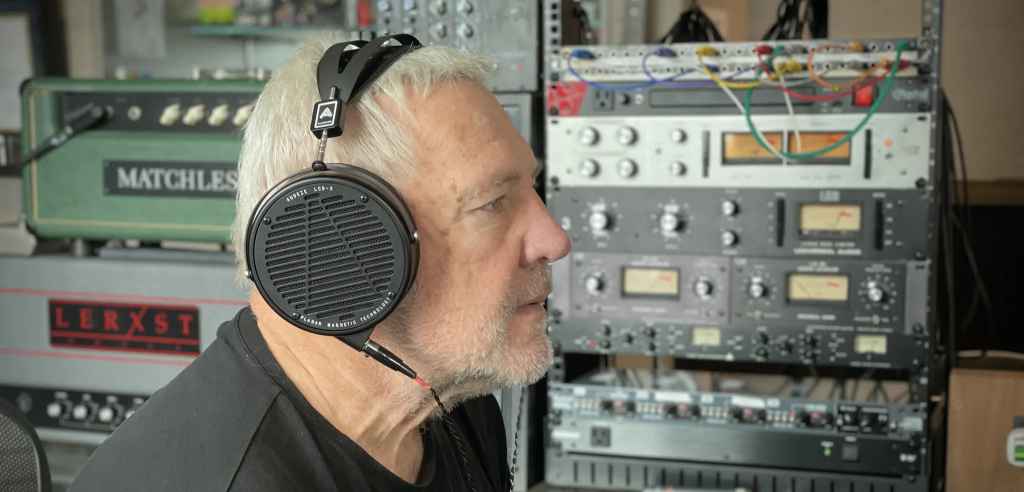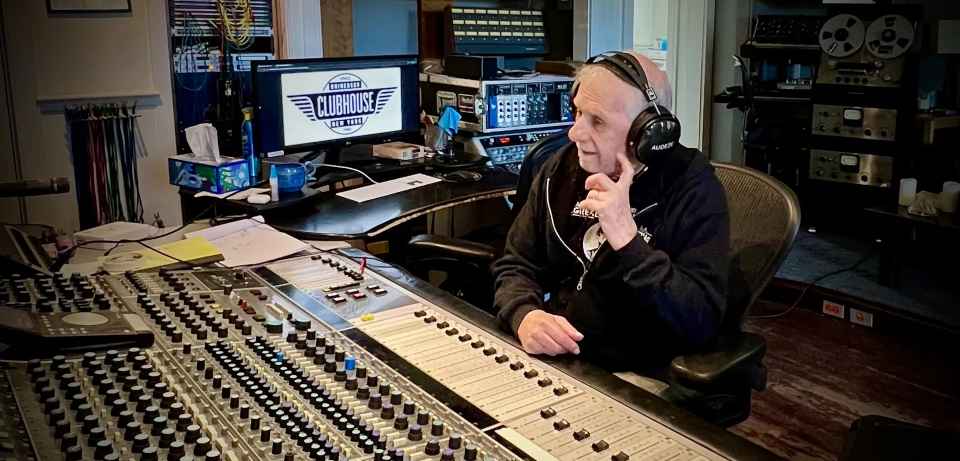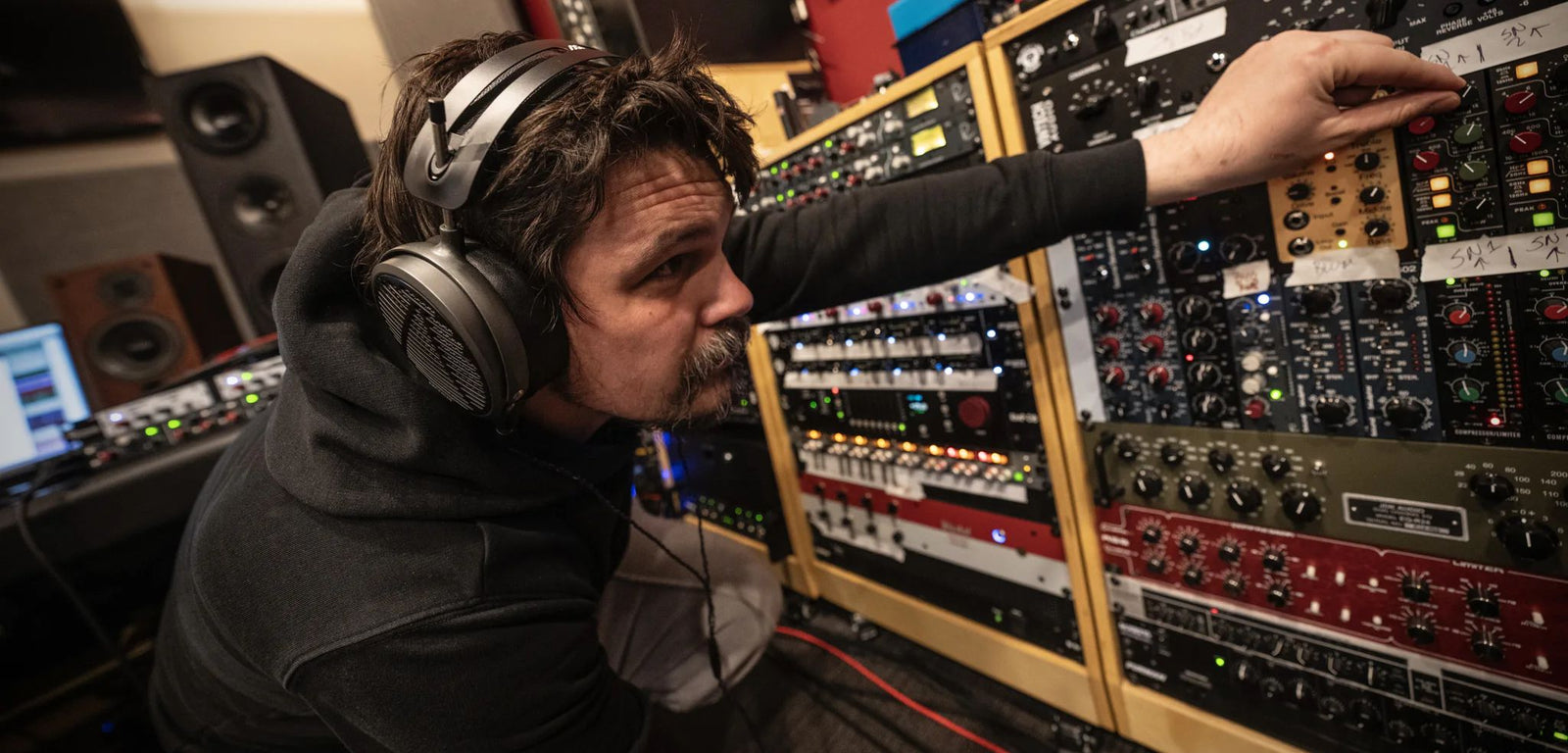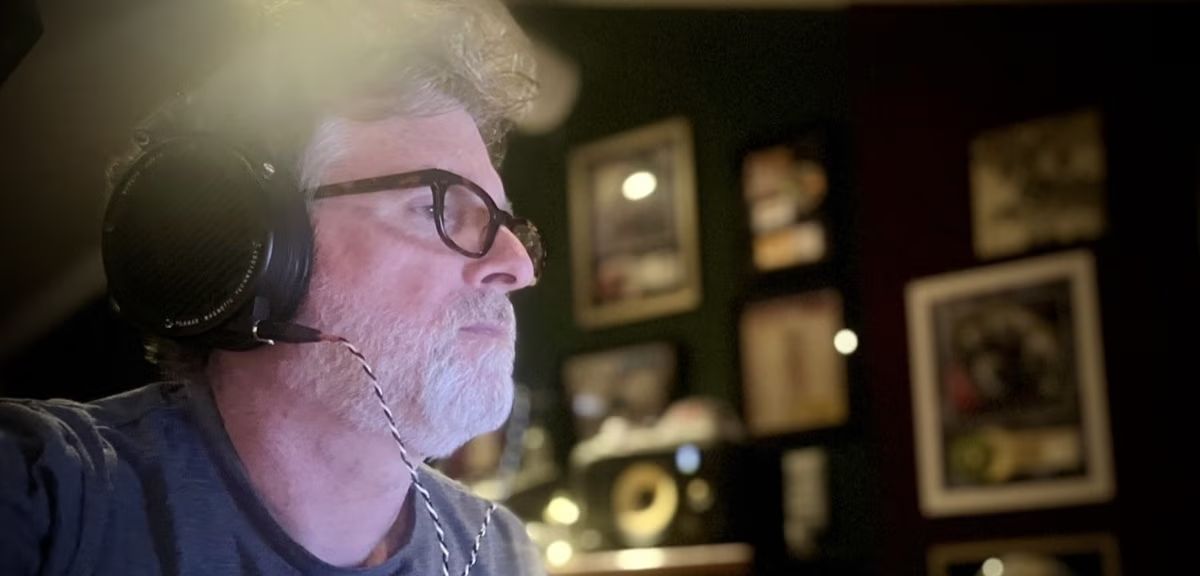
Alex Lifeson is a Canadian musician, best known as the guitarist of the Canadian rock band Rush.

Elliot Scheiner is an engineer and producer. He started working for Phil Ramone at his A&R studios which at that time was considered one of the best studios in the country.

James 'Jimmy T' Meslin is a Grammy winning recording, mix, and live sound engineer based out of Long Island, NY. He's probably best known for his work with prog-metal giants Dream Theater and their affiliated projects.

Dave Way has been mixing longer than he hasn’t. Platinum albums, No. 1 singles, 4 Grammys, 19 Billion streams with names like Michael Jackson, Fiona Apple, P!nk, Xtina Aguilera, Ringo Starr, Iron And Wine, Sheryl Crow, Marshmello, Fall Out Boy, Kesha, Macy Gray, TLC, Victoria Monet, Sons Of Anarchy, Tracy Chapman, Ben Folds, John Doe, MC5, Spice Girls, Weird Al, Paul McCartney, Bobby Brown, Mick Jagger and many, many more.
August 23, 2021

photo by Michelle Arcila
If I should pick out the one release I’m the most proud of I’d say the fourth record I did with my band, Overseas, back in 2012, aptly named Overseas IV. I feel that release really came together on all levels for me: compositionally, conceptually, sound wise (recorded by Tom Schick at the now defunct Magic Shop in Soho, NY) and also visually (cover art, video etc.). It’s a concept record of sorts, thematically inspired by 18th century history, I used a harpsichord and took inspiration from the baroque period of art and music.
Well... pre Covid-19, my time was split between being a bassist, mostly upright bass, some electric, in a slew of different bands here in NYC and being a mixing and mastering engineer here in my studio. Obviously playing shows has not been on the agenda recently, but I still have been keeping busy in the studio, both mixing and mastering other musicians projects and working on my own solo album to come out soon. It’s a mix of of musique concrète, electronica, Krautrock and ’80s pop, among much else. I even venture into using my voice, which is an uncharted territory for me.
As a sideman bassist, my role is to bring creativity and my personality to the bands and to play in service of the music. I would say the same approach applies when it comes to mixing. I mix a lot of experimental improvised music and jazz, and I feel my role is to make sure the musicians intent is coming through and that the music breathes and blends together naturally. Having played in so many different bands and settings over the past decades has given me a good sense of how this music is brought to its fullest potential sound-wise and also what gives the music the right energy and presence. This has heavily informed my mixing approach. I always try to find the spot where the music translates the best and has the most emotional impact and energy.
My father is a hobby musician / music lover so I grew up around music. I started on drums as a little kid, but in my early teens my cousin left his electric bass at my house, and I was hooked, which led to the upright bass, studying classical bass at Norwegian Music Academy and then further studies in NYC at Manhattan School of Music.
I loved The Beatles as a kid, which led to Pink Floyd, Deep Purple, Jimi Hendrix etc... in my teens I got really into Miles Davis who is still one of my biggest musical heroes; during my studies I dove into classical music. I still listen to most of those artists, but I love listen to all kinds of stuff these days, there’s so much amazing creative music in all styles.
I think getting a Tascam 4 track cassette tape recorder at the age of 13 really started my fascination with recording and sound, since then I have always loved working in the studio, alone or with others, it can be just as creative and fulfilling as playing great music live.
In terms of bass playing I always connected with Paul Chambers (Miles Davis' bassist in the 50s early 60s) in sound, feel and style. That was what made me want to really get into the upright bass.
Sounds maybe corny, but to me the bass is like the sound of the natural elements, so rooted. A deep sound, an ancient sound; wood, gut strings, human hands… doesn’t get much more analog than that.
Happy to say that for the most part music is a place of joy for me so I rarely get frustrated in my profession, but of course it happens. I do remember at the beginning of my career going to professional mixers and studios with my music and often being frustrated with having to sit on the side and not being able to get in there and fix the balance and turn off the super bright reverb they always liked to put on horns, haha! That is why I started mixing all my music myself.
As a bassist, It’s pretty simple: just my French bass from the 1860s with some good hybrid and gut strings. Amps etc are not of that much importance, it’s an acoustic instrument, the amplification is just a necessary evil. The sound comes from the instrument and the fingers.
In the studio I love old keyboards; organs and obscure synthesizers. I dig the old Farfisa stuff, I have a combo organ from the 60s and one of their last explorations into synthesizers, the Soundmaker, a wonderfully quirky and vibe-y instrument.
I also like my Royer and AEA ribbon microphones, my Fulltone tube tape echo, and UAD, Soundtoys, and Kush plug-ins.
It’s getting increasingly hard to make a living in music, so I would say have more than one foot to stand on; touring, teaching, engineering, musician-for-hire internet services (Soundbetter etc, which I’m on), YouTube, podcasts…
In my studio I have always used headphones a lot, frequently for double checking things, but I also sometimes do long stretches just working on headphones.
I also use headphones for my listening enjoyment. Family life with kids doesn't always present the opportunity to sit down in front of the stereo to enjoy some music, headphones are therefore life savers. I also like to check mix bounces on different headphones doing everyday tasks or when I’m out, I always hear other things than when I’m sitting in front of the mixing station, I will then take mix notes on my phone.
The LCD-Xs have been a great companion to my monitors in my studio and I’ve been using them for both tracking and mixing. I’ve also been using them remotely and it’s amazing to have this amount of trustworthy, detailed and unhyped sound with a small laptop setup, (they shine with the Grace m900 DAC preamp). I have already mastered tracks with only these without missing anything. I’ve been working on finishing up mixes for my upcoming solo album, entitled “Emotional Switches” to be released November 5th 2021 on Loyal Label. A couple of singles will be out before that, the first one on September 3rd.
I also just finished mixing and mastering a really beautiful new album by fellow upright bassist Sean Conly (The Buzz), it’s with his trio of Leo Genovese on piano and Francisco Mela on drums. It will come out on vinyl on 577 Records.